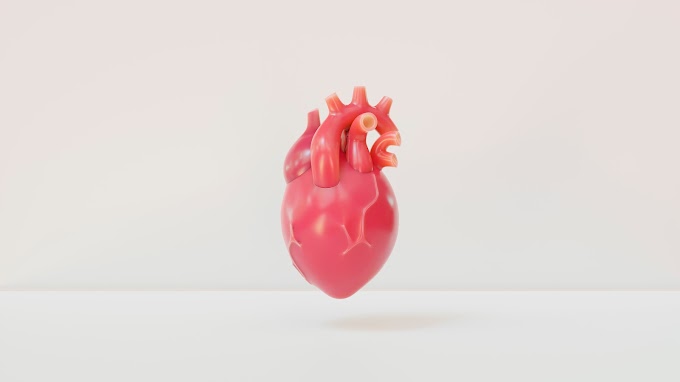These flaws may impact the heart's ability to pump blood, its structural integrity, or its overall performance.
The most prevalent birth defect, congenital heart disease, affects almost one out of every 100 newborns born in the US.
Congenital cardiac abnormalities come in a variety of forms and range in severity.
Congenital cardiac abnormalities come in a variety of forms and range in severity.
While some problems are more serious and may require surgery or other procedures to rectify, others are rather modest and may not require any treatment at all. Among the prevalent varieties of congenital cardiac problems are:
1. Atrial septal defect: A hole in the wall that divides the heart into two The atria are the two upper chambers of the heart. This hole can put strain on the heart and cause difficulties because it allows oxygen-poor blood from the right atrium to mix with oxygen-rich blood from the left atrium.
1. Atrial septal defect: A hole in the wall that divides the heart into two The atria are the two upper chambers of the heart. This hole can put strain on the heart and cause difficulties because it allows oxygen-poor blood from the right atrium to mix with oxygen-rich blood from the left atrium.
2. Ventricular septal defect: The ventricles, the heart's two lower chambers, are divided by this hole in the wall. This opening causes oxygen-poor blood from the right ventricle to mix with oxygen-rich blood from the left ventricle, which can strain the heart further and perhaps cause problems.
3. Tetralogy of Fallot: This conglomeration of four distinct cardiac malformations impairs the anatomy and physiology of the heart. Ventricular septal defects are frequently present in tetralogy of Fallot patients, as as well as additional problems like an enlarged right ventricle and pulmonary artery constriction.
4. Aortic coarctation: This is the narrowing of the aorta, which is the major blood vessel that supplies the body with oxygen-rich blood from the heart. This constriction may limit blood flow and increase cardiac strain.
5. Transposition of the great arteries: This is a disorder in which the aorta and pulmonary arteries, the two major blood vessels that leave the heart, are inverted or flipped. This may cause the body to stop pumping blood that is rich in oxygen.
These are but a handful of the numerous varieties of congenital cardiac abnormalities that can happen. Certain flaws could be Some may not receive a diagnosis until after delivery or later in life, while others may be found during pregnancy through prenatal screening testing.
A baby's chance of being born with a heart abnormality can be raised by a number of variables, albeit the precise cause of congenital heart disease is not always understood. Among these risk factors are:
- Genetics: Since congenital heart problems can run in families, there is a higher chance that a child born with one will also have one if they have a close relative who has one.
A baby's chance of being born with a heart abnormality can be raised by a number of variables, albeit the precise cause of congenital heart disease is not always understood. Among these risk factors are:
- Genetics: Since congenital heart problems can run in families, there is a higher chance that a child born with one will also have one if they have a close relative who has one.
- Environmental variables: Congenital heart disease risk may be elevated by exposure to specific chemicals or drugs during pregnancy, among other environmental factors.
- Medical conditions: Obesity and diabetes, for example, might raise a baby's chance of being born with a heart defect. - Mother's age: Pregnant women over 40 years old have an increased chance of giving birth to a child with a heart defect.
Since the precise etiology of a congenital cardiac abnormality is frequently unknown, it is most likely the result of a confluence of hereditary and environmental variables.
Depending on the kind and extent of the abnormality, there are different treatments for congenital cardiac illness.
Since the precise etiology of a congenital cardiac abnormality is frequently unknown, it is most likely the result of a confluence of hereditary and environmental variables.
Depending on the kind and extent of the abnormality, there are different treatments for congenital cardiac illness.
While minor problems may heal on their own with no treatment at all, others may need to be corrected with surgery, medication, or other measures. Treatment might be required shortly after delivery in certain situations, but it might be possible to wait until the kid is older in other situations.
More severe congenital cardiac abnormalities are frequently corrected with surgery.
More severe congenital cardiac abnormalities are frequently corrected with surgery.
This may entail patching up holes in the heart, clearing blockages in the arteries or valves, or reconstructing malformed cardiac components. While certain procedures can be completed with minimally invasive methods, others might need open cardiac surgery.
People with congenital heart disease may require medicine to assist manage their condition in addition to surgery. These drugs may help control blood pressure, lessen the danger of blood clots, or regulate the heart's rhythm. If the heart is too damaged to be mended, a heart transplant may be required in some circumstances.
Individuals with congenital heart disease may benefit from lifestyle modifications in addition to medical therapies.
People with congenital heart disease may require medicine to assist manage their condition in addition to surgery. These drugs may help control blood pressure, lessen the danger of blood clots, or regulate the heart's rhythm. If the heart is too damaged to be mended, a heart transplant may be required in some circumstances.
Individuals with congenital heart disease may benefit from lifestyle modifications in addition to medical therapies.
to aid in the management of their illness. This can involve maintaining a nutritious diet, exercising frequently, abstaining from tobacco and excessive alcohol use, and learning stress management techniques. Regular check-ups with a cardiologist are crucial for individuals with congenital heart disease in order to monitor the condition of their heart and make any required modifications to their treatment plan.
Although having congenital heart disease might be difficult, many people with heart problems can enjoy active, fulfilling lives with the right support and care.
Although having congenital heart disease might be difficult, many people with heart problems can enjoy active, fulfilling lives with the right support and care.
To treat their illness and avoid complications, patients with congenital heart disease must collaborate closely with their medical team. The prognosis for those with congenital heart disease is getting better because to advancements in medical science and available treatments.

.jpg)



.jpg)




.jpg)



0 Comments